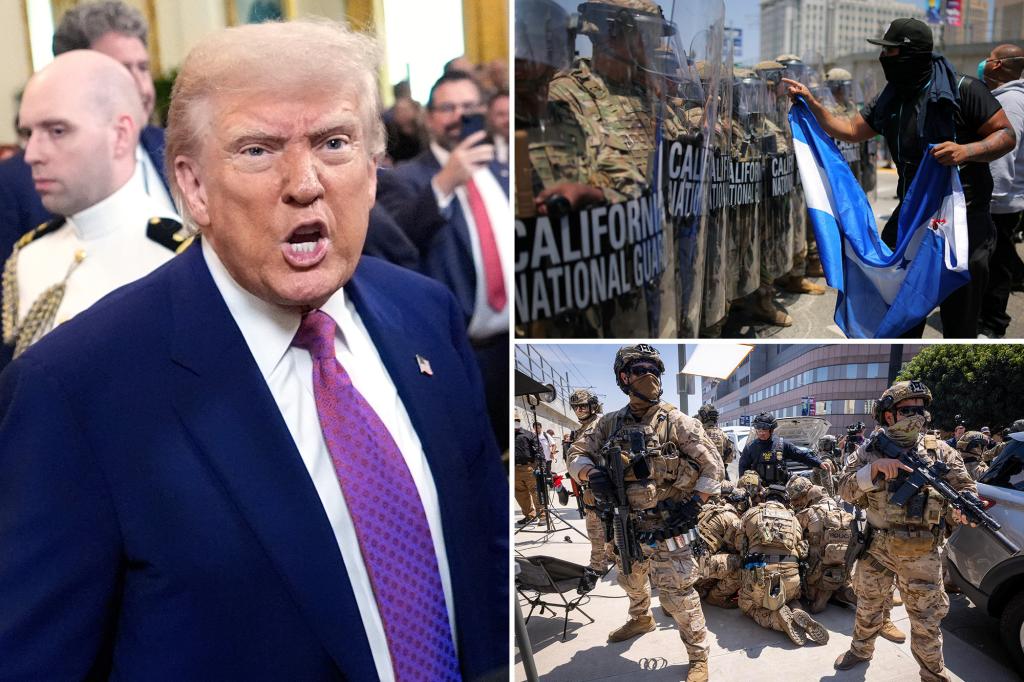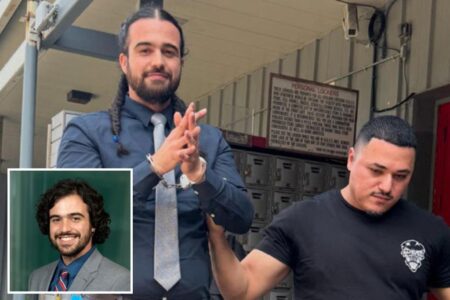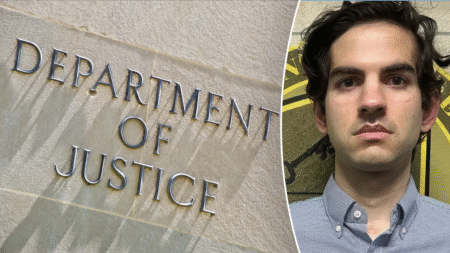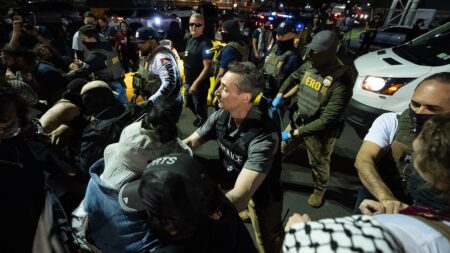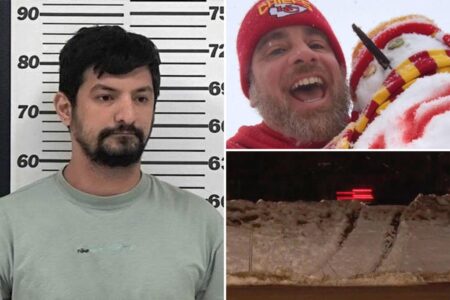WASHINGTON — A federal judge expressed skepticism Thursday about the constitutionality of President Trump’s order to deploy thousands of National Guard troops to Los Angeles to quell anti-ICE riots.
Senior San Francisco US District Judge Charles Breyer heard arguments from attorneys for Trump’s Justice Department and California Gov. Gavin Newsom after the Democrat had sued the feds over dispatching roughly 4,000 Guard members to protect officers carrying out immigration enforcement operations.
“We’re talking about the president exercising his authority, and the president is, of course, limited,” Breyer, the younger brother of liberal former Supreme Court Justice Stephen Breyer, said at one point in the hearing.
“That’s the difference between a constitutional government and King George.”
Brett Shumate, the head of the DOJ’s Civil Division, disputed Breyer’s characterization of the president’s order throughout the hour-long hearing, arguing that the commander-in-chief had “delegated” the federalizing of the Guard through California’s adjutant general, as legally required.
Shumate also claimed that Newsom was merely a “conduit” for that order as it passed through the chain of command from Trump to Defense Secretary Pete Hegseth to the state Guard.
“There’s no consultation requirement, pre-approval requirement,” he argued. “There’s one commander-in-chief of the armed forces.”
The California attorney general’s office countered that allowing Trump’s action to stand implied there would be “no guardrails” for further abuse by the executive branch.
“The president, by fiat, can federalize the National Guard and deploy it,” an attorney for Newsom said, “whenever there is disobedience to an order.”
While Breyer took issue with the deployment of the National Guard, he appeared more inclined to let stand Trump’s order sending around 700 US Marines to the Golden State to assist with the federal immigration crackdown.
“I don’t understand how I’m supposed to do anything with the Marines, to tell you the truth,” the judge responded, quibbling with Newsom’s legal team over whether their involvement violated the Posse Comitatus Act.
Breyer did not immediately issue a ruling, but said he hoped to put one out “very soon.”
This is a developing story. Please check back for more information.
Read the full article here







